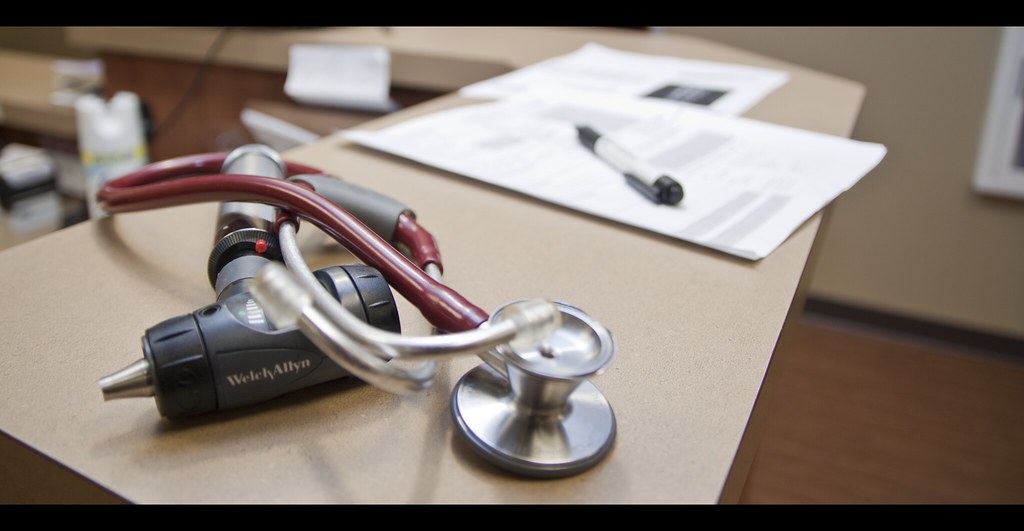HELENA — Governor Greg Gianforte and the Montana Department of Public Health and Human Services announced Tuesday they have submitted a federal waiver application to revive work requirements and implement graduated premium increases for Medicaid expansion enrollees, leveraging new federal legislation to resurrect a state program blocked by the Biden administration.
The Health and Economic Livelihood Partnership (HELP) demonstration waiver seeks five-year federal approval to require community engagement activities and cost-sharing for working-age, able-bodied adults enrolled in Montana’s Medicaid expansion program, which currently covers approximately 75,326 people.
“The safety net of Medicaid should be there for those who truly need it, but if everyone is allowed to climb upon the net, it will collapse,” Gianforte said in announcing the waiver submission. “By requiring healthy adults to engage in work-related activities and cost sharing, we can help preserve the long-term sustainability of the Medicaid program and ensure that this critical health coverage remains available for those who need it most.”
Reviving Montana’s Original Framework
The HELP program represents a revival of Montana’s original Medicaid expansion approach, first approved by federal officials in November 2015. The initial demonstration operated from 2016 through 2022 but expired after the Biden administration required the phase-out of premiums and blocked community engagement requirements despite Montana passing House Bill 658 in 2019 mandating their implementation.
“After the Biden administration’s refusal to allow Montana to implement these requirements, my administration committed to swiftly achieving this goal as quickly as possible in partnership with the Trump administration,” Gianforte wrote in a letter to Health and Human Services Secretary Robert F. Kennedy Jr.
The state’s new application directly cites the recently enacted One Big Beautiful Bill Act (OBBBA), signed into law July 4, 2025, which establishes federal community engagement requirements for Medicaid expansion populations beginning December 2026. Montana is using this federal framework as authority to implement its state requirements ahead of the federal deadline.
Program Requirements and Structure
Under the proposed waiver, non-exempt Medicaid expansion enrollees aged 19-64 would be required to participate in community engagement activities for at least 80 hours per month. Qualifying activities include employment, job training, education, community service, and workforce programs.
The program also implements a graduated premium structure unique to Montana. Enrollees would pay 2% of their household income in premiums for the first two years, with the rate increasing by 0.5% each subsequent year up to a maximum of 4% of household income.
“By requiring working age, able-bodied adult Medicaid enrollees to take an active role in their health care and become engaged in their communities, Montana can achieve lasting improvements in both the health and economic well-being of its citizens,” said DPHHS Director Charlie Brereton.
Exemptions and Enforcement
The waiver includes extensive exemption categories aligned with federal requirements, including individuals who are medically frail, pregnant, caregivers of dependent children under 13, veterans with total disability ratings, and Native Americans. Montana is seeking additional exemptions for foster parents and individuals under Department of Corrections supervision.
Enrollees who fail to meet work requirements would receive 30-day notices to comply or demonstrate exemption status before facing disenrollment. The state plans six-month compliance reviews and enhanced annual redeterminations requiring proof of participation for at least five of the previous 12 months.
Premium collection varies by income level. Those earning 100% of the federal poverty level or below would have unpaid premiums collected through state income tax without losing coverage. Those earning between 100-138% of poverty level could be disenrolled after 90 days of non-payment, though certain groups including veterans, students, and workforce participants are protected from disenrollment.
Projected Impact and Budget Implications
State projections estimate 17.5% of current Medicaid expansion enrollees will lose coverage due to community engagement requirements, with an additional 1.5-2.5% potentially losing coverage due to premium requirements. This could affect approximately 15,000-20,000 Montanans currently enrolled in the program.
The state frames these coverage losses as budget savings, projecting $80-90 million in reduced federal expenditures over five years through decreased enrollment. Montana argues this “budget neutrality” helps preserve program sustainability for remaining enrollees.
Federal Alignment and Future Conflicts
While Montana’s application aligns with OBBBA’s community engagement requirements, a significant conflict looms over cost-sharing mechanisms. Federal law will prohibit Medicaid premiums beginning October 1, 2028, requiring states to use copayments instead. However, Montana state law prohibits copayments and mandates premiums.
Montana is requesting federal authority to maintain its premium structure beyond 2028, arguing premiums are more effective than copayments in encouraging “personal responsibility” and preparing enrollees for commercial insurance transitions.
Public Response and Implementation Timeline
The state conducted public hearings in July and August, receiving feedback from tribal representatives, healthcare advocates, and community members. Thirty-six comments were submitted during tribal consultation, focusing on exemption criteria, premium structures, and administrative burden concerns.
Montana projects it could begin implementing the waiver “as soon as practicable” following federal approval, potentially in early 2026 if approved. The state has committed to promptly pursuing implementation ahead of the federal December 2026 deadline.
The waiver application and supporting documents are available at help.mt.gov, with the state seeking to leverage the new federal framework to finally implement work requirements and cost-sharing policies that have been Montana law since 2019.
